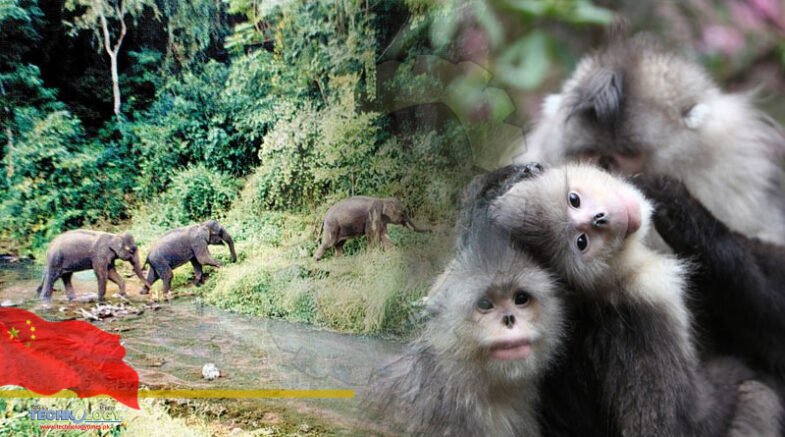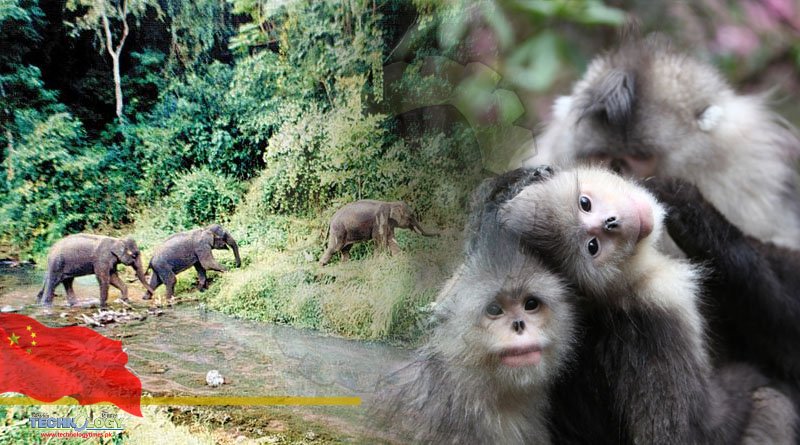China as one of the world’s most biodiverse countries, has always placed a high value on biodiversity conservation and has made remarkable progress in this regard.

China, as one of the world’s most biodiverse countries, has always placed a high value on biodiversity conservation and has made remarkable progress in this regard, as evidenced by the White Paper titled “Biodiversity Conservation in China” published on October 8, 2021.
The second phase of the 15th meeting of the Conference of the Parties (COP15) to the United Nations Convention on Biological Diversity (CBD) is being held from December 7 to 19. Despite ongoing efforts, biodiversity is declining globally, and this trend is expected to worsen under business-as-usual scenarios. International partners are urgently needed to halt and reverse the alarming loss of biodiversity around the world.
The conference, which brings together governments from around the world, has been focusing on halting biodiversity loss and protecting nature around the world. In the post-2020 global biodiversity framework, delegates are expected to set new goals and develop an action plan for nature over the next decade, with the goal of halting biodiversity loss by 2030 and achieving recovery by 2050.
The CBD protocols dealing with the fair and equitable sharing of benefits from the use of nature, as well as the safe transport, handling, and labelling of Genetically Modified Organisms, are also being considered at COP15.
China protects biodiversity through innovative and cutting-edge measures, establishing a new pattern of biodiversity conservation. It has proposed and implemented a slew of measures to boost biodiversity conservation efficiency, including the establishment of national parks, the establishment of red lines for ecological conservation, and the strengthening of in-situ and ex-situ conservation.
What distinguishes China’s approach to addressing biodiversity loss and ecosystem degradation is the country’s commitment to the philosophy of harmonious coexistence between humanity and nature, which is based on the concept of a shared future for all life and thus prioritises biodiversity conservation and green development.
Under the banner of a shared future for all life, China has elevated biodiversity conservation to a national strategy and incorporated it into all regions’ and fields’ mid- and long-term plans.
Furthermore, China recognises the importance of global cooperation and governance in biodiversity conservation. Multilateralism is its approach to all global issues, as evidenced by its international behaviour. The country actively engages in international biodiversity conservation cooperation through extensive consultations to build consensus and present a unified plan for global biodiversity governance.
In this context, it is fair to say that China’s achievements and multilateral approach in this area have provided significant political impetus to global biodiversity conservation. The country has lobbied for the adoption of the post-2020 global biodiversity framework, which is on the agenda for the Montreal conference.
In fact, China will host the first phase of COP15 in Kunming in October 2021. Both Chinese President Xi Jinping’s keynote speech and the Kunming Declaration, which China helped to organise, emphasised the critical need to combat the biodiversity crisis.
The first phase of the conference also highlighted many approaches being taken around the world, such as incorporating biodiversity and natural capital considerations into wealth and performance assessments. Unfortunately, due to the global COVID-19 pandemic, the second phase, which was originally scheduled for April 2022, had to be postponed and relocated to Montreal.
China has worked with all parties and stakeholders to advance negotiations on the global biodiversity framework as the president of COP15. In his speech on December 15, President Xi emphasised the need to build global consensus on biodiversity protection, to advance the global process of biodiversity protection, to promote green development through biodiversity protection, and to uphold a fair and equitable global order on biodiversity protection. China’s solution to the biodiversity crisis is a four-pronged proposal.
Xi stated that “We will do our best to provide support and assistance to fellow developing countries through the Belt and Road Initiative International Green Development Coalition and the Kunming Biodiversity Fund,” as expected. The offer exemplifies China’s new contribution to constructing a shared future for all life, which is expected to raise global biodiversity governance to a new level.
Originally published at CGTN
